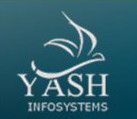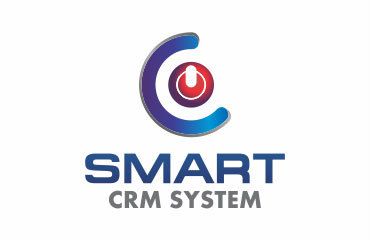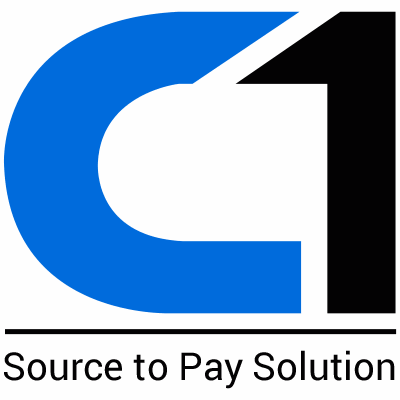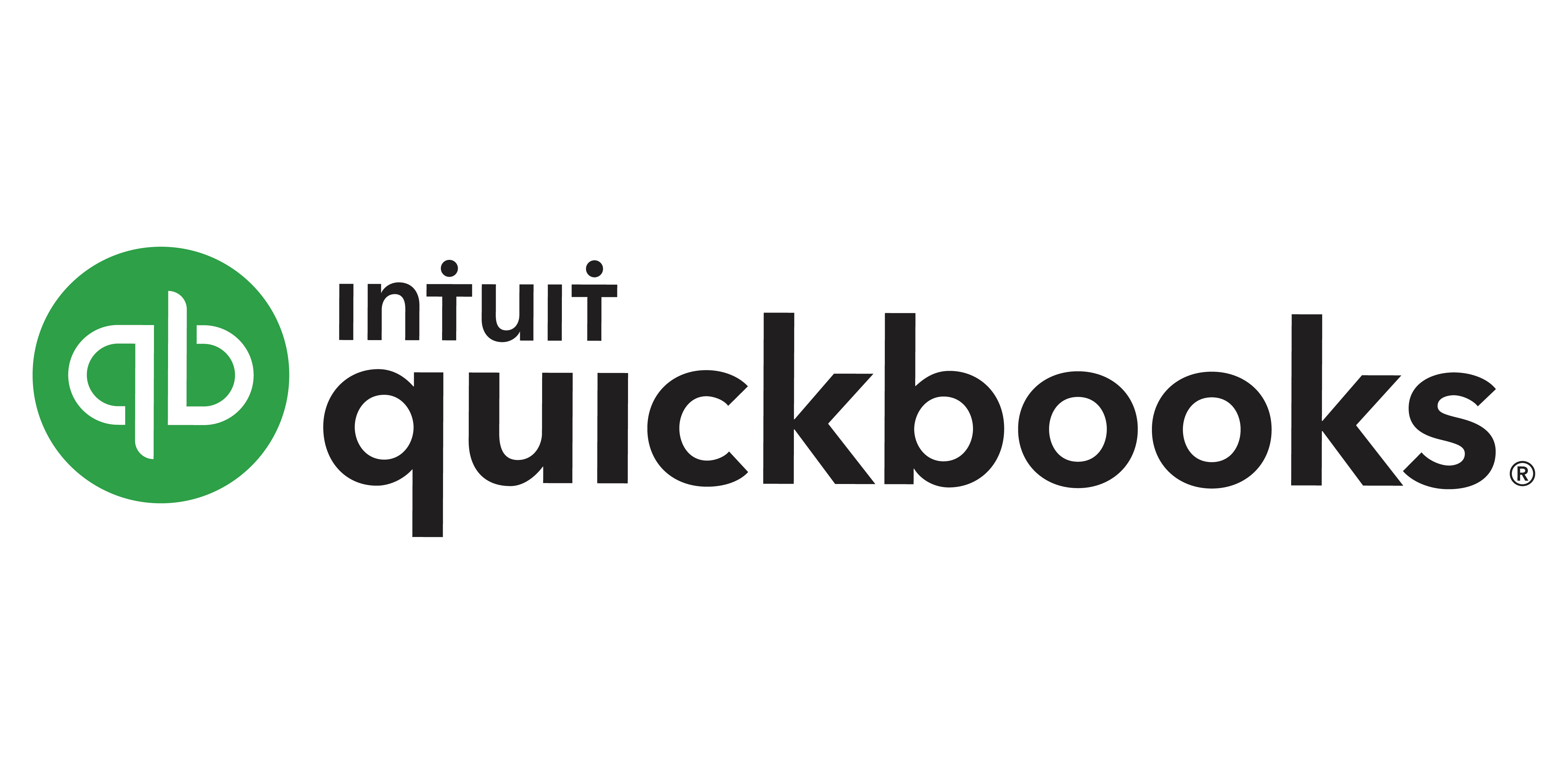Yes, most industry software is built to work with numerous devices and platforms. This implies that the program may be accessed on a variety of devices, including desktops, laptops, tablets, and smartphones, as well as operating systems such as Windows, MacOS, iOS, and Android. Users may access the program at any time and from any location as long as they have an internet connection, which is convenient and flexible.
List of 20 Best Any Industry Software
Transform your inventory management process with eStock solution for your business. Keep a track of every purchase and monitor internal and external movements effortlessly. Say goodbye to complicated report generation with our user-friendly software...Read More eStock - Inventory Software
Wave Accounting is a reputable and completely free accounting solution that has gained endorsement from accountants. Its intuitive features allow you to effortlessly connect your bank accounts, sync your expenses, and effectively track your finances...Read More Wave Accounting
Invoicing by Wave is a invoicing tool for small businesses, freelancers, and entrepreneurs! With its user-friendly interface and endless invoicing capabilities, collecting payments has never been easier. Say farewell to manual invoicing and embrace h...Read More Invoicing by Wave
Vtiger One is a cloud-based CRM solution tailored for small and medium-sized businesses. Our versatile platform includes Sales, Help desk, Marketing, Projects, and Inventory features, all seamlessly integrated with our cutting-edge customer One View...Read More Vtiger CRM
Gaurilla - the premier web-based accounting software that caters to the needs of small and medium businesses. With its limitless features for managing transactions, invoices, clients, journal entries, and vendors, Gaurilla simplifies all your financi...Read More Gaurilla
HomeBank is a personal finance software that streamlines your accounting tasks. With its user-friendly interface, you can effortlessly track expenses, income, assets, and budget. Generate detailed reports and easily import Amiga-related data. Taking...Read More HomeBank
Web Librarian is a advanced library management and automation software specifically designed for information providers, managers, and librarians. Our comprehensive solution allows for seamless management and distribution of information from multiple...Read More Web Librarian
Experience effortless budgeting with Metalogic Finance Explorer. Its user-friendly interface and advanced features make budgeting a breeze. Automate the import of financial data from your bank and easily organize data from any source or format using...Read More Metalogic
DYN Digital Signage by Yash Infosystems – solution for all your digital signage requirements. Our advanced software and hardware offerings enable businesses to effectively communicate with customers, employees, and clients. Say goodbye to thir...Read More DYN Digital Signage
Smart CRM System is a software solution designed to assist businesses in managing customer data, interactions, and crucial business information. With its various applications, this system automates sales, marketing, and customer support processes, wh...Read More SMART CRM SYSTEM
C1 is a digital platform designed to simplify and enhance the tendering and post-contract project management process. Our highly acclaimed e-tender solution has received widespread recognition for its effectiveness in handling online tenders. Discove...Read More C1
QuickBooks Online, the premier accounting software for entrepreneurs and business owners. Streamline your financial management with its intuitive interface, top-notch security measures, and cutting-edge features such as Online bank connectivity and W...Read More QuickBooks Online
Enquire Management Software is a tool for managing enquiries and responses from various channels. With its user-friendly interface, this software streamlines your enquiry process, allowing for increased organization and productivity. Say farewell to...Read More Enquiry Management
IDMS is a software for streamlining workflow and enhancing efficiency at law firms. This cutting-edge solution is specifically designed to optimize industrial design portfolio management, providing structured and accurate operations. Elevate your bus...Read More Iolite Design Management
JMS Attendance is the cloud-based software designed for effortless attendance management for your company. Say goodbye to costly hardware and installation fees with our affordable system. Our user-friendly interface simplifies the process of monitori...Read More JMS Attendance
DataStock solution for readily available web data sets. With just one click, access pre-crawled data bundles from a variety of industries such as E-commerce, Recruitment, Automobile, and Hospitality. Eliminate the need for manual data extraction or s...Read More DataStock
Emportant solution for HR and payroll management in growing businesses. Our platform, UnComplex, offers a user-friendly interface that makes managing employee information, tracking time and attendance, and managing leaves a breeze. With Emportant, st...Read More emportant
Konfer by Alliance is a tool for convenient and cost-effective conference calls with your team, clients, or associates. Our platform streamlines communication through both landline and VoIP options, allowing you to effortlessly connect with a geograp...Read More Konfer
Arcane Lite - the advanced and compact USB recorder that simplifies recording and managing phone conversations. Compatible with analog phone lines, it effortlessly captures incoming and outgoing calls, allowing you to retrieve and analyze vital infor...Read More Arcane Lite
Alacrity Time and Attendance is resource management solution created to enhance productivity in organizations. With our software, you can efficiently manage your workforce, the most critical aspect of your business. Time Track streamlines all your ti...Read More Alacrity Time and Attendance
Learn More About Any Industry Software
- What Is Any Industry Software?
- What Are the Recent Trends in Any Industry Software?
- Benefits of Using Any Industry Software
- Important Factors to Consider While Purchasing Any Industry Software?
- What Are the Key Features to Look for in Any Industry Software?
- Why Do Businesses Need Any Industry Software?
- How Much Time Is Required to Implement Any Industry Software?
- What Is the Level of Customization Available in Any Industry Software?
- Which Industries can benefit the most from Any Industry Software?
- Conclusion
What Is Any Industry Software?
Any Industry Software is a wide word that refers to many types of software created to fulfill the unique requirements of different industries. It refers to a type of software that provides specialized solutions to solve the particular issues and requirements of various sectors, like manufacturing, healthcare, finance, and others. One of the most important characteristics of Any Industry Software is its ability to simplify and automate industry-specific procedures, hence enhancing efficiency and production.
This software also assists organizations in adhering to industry norms and laws, so assuring compliance and reducing the danger of legal consequences. Furthermore, Any Industry program is extremely adaptable, allowing organizations to adjust the program to their own requirements and workflows. Because of its adaptability, it is a beneficial investment for organizations of all sizes, since it can meet their specific demands and develop with them.
Furthermore, as technology advances, Any Industry Software now includes advanced features such as data analytics, artificial intelligence, and machine learning, which provide businesses with valuable insights and predictive capabilities to help them make informed decisions and stay competitive. Investing in Any Industry Software may result in considerable cost savings for firms by eliminating the need for several software solutions for various departments or tasks.
It also decreases the likelihood of data duplication and inaccuracies, resulting in reliable and consistent data across all operations. To summarize, Any Industry Software is a strong and diverse software category that provides industry-specific solutions to improve procedures, compliance, and company performance. It is an essential tool for organizations seeking to remain competitive, efficient, and compliant in today's ever-changing market.
What Are the Recent Trends in Any Industry Software?
The world of technology is continuously changing, and one of the businesses most affected by these advances is the software industry. Any Industry Software refers to a diverse set of software solutions designed for distinct sectors, including healthcare, manufacturing, transportation, and others. As a buyer, you must remain up to speed on the newest trends in this area in order to make educated selections and invest in the best software for your business.
we'll look at the latest developments in Any Industry Software and how they may help your business.
1. Cloud-Based Solutions:The advent of cloud computing has transformed the software business, and Any business Software is no exception. Cloud-based solutions are becoming increasingly popular among enterprises, replacing traditional on-premise software. This trend is being pushed by the ease, cost-effectiveness, and flexibility of cloud-based software. Businesses using cloud-based Any Industry Software may access their data and apps from anywhere, on any device, making it simpler to collaborate, simplify operations, and remain competitive.
2. Artificial intelligence (AI): Artificial intelligence has made headlines in recent years and is now an essential component of any industry software. AI-powered software can automate processes, evaluate massive volumes of data, and provide predictions and recommendations based on that data. Artificial intelligence is being applied in fields such as healthcare to enhance diagnostics and aid with surgery. AI may improve industrial processes and spot mistakes. As a result of these features, AI-powered Any Industry Software is becoming increasingly popular, and this trend is projected to continue.
3. The Internet of Things (IoT): Another major trend in the software business is the Internet of Things (IoT), which is being more widely embraced in Any business Software. The Internet of Things (IoT) refers to the linking of physical things to the internet, which allows them to collect and share data. In sectors such as agriculture and transportation, IoT-enabled Any Industry Software is being used to monitor and control operations, enhance efficiency, and save costs. As more devices connect to the internet, the use of IoT in Any Industry Software is projected to increase in the future years.
4. Big Data Analytics: The quantity of data created by organizations is increasing constantly, making it critical to make sense of this data in order to acquire useful insights. This is where big data analytics come into play, and it is another trend that can be found in any industry software. Businesses may use sophisticated algorithms to examine massive information, find patterns and trends, and make data-driven choices. Big data analytics is used in banking and retail to forecast customer behavior, optimize marketing techniques, and detect fraud. As the value of data grows, the usage of big data analytics in Any Industry Software is projected to rise.
Benefits of Using Any Industry Software
Businesses in a variety of industries now require industry-specific software. With technological improvements, there are currently several software solutions accessible for certain industries such as healthcare, banking, manufacturing, and others. These industry-specific software not only streamlines procedures, but also provides several benefits to enterprises, making them a necessary investment.
we'll go over the main benefits of adopting Any Industry Software, so you can make an informed buying choice.
1. Tailored to Industry Needs: One of the most significant benefits of adopting Any Industry Software is that it is particularly built to satisfy the unique needs of a given industry. Unlike generic software, industry-specific software has features and functionalities that are built to meet the unique difficulties and demands of a given sector. This not only improves the software's efficiency, but also saves enterprises time and resources.
2. Increased Productivity: Any Industry Software is designed to automate and simplify numerous operations, minimizing manual labor and human error. This, in turn, leads to enhanced production since staff can focus on more important activities, resulting in shorter response times and more efficiency. The platform also enables smooth cooperation and data exchange among team members, hence increasing efficiency.
3. Cost Savings: Implementing industry-specific software can help organizations save money in the long term. Businesses may save money on resources and operating costs by using features such as automation, simplified workflows, and enhanced efficiency. Furthermore, these software solutions reduce the need for several tools and apps, resulting in additional cost savings.
4. Regulatory Compliance: Each sector has its own set of rules and compliance standards, which organizations must follow. Businesses may use Any Industry Software to maintain compliance while also staying up to date on new legislation. These software solutions frequently include built-in compliance checks and capabilities to assist organizations stay compliant and avoid any fines or legal implications.
5. Improved Data Management: Any Industry Software enables firms to store and manage data in a more efficient and organized manner. This not only saves time, but also assures that the data is accurate and consistent. Furthermore, these software solutions include strong data analytics and reporting tools, enabling organizations to make educated decisions based on real-time data.
Important Factors to Consider While Purchasing Any Industry Software?
Purchasing software may be a difficult job, especially with the variety of solutions available on the market. When it comes to industry-specific software, the stakes are even greater because it has a direct influence on your business's efficiency and production. To ensure you make the right decision for your company,
Here are some key aspects to consider while selecting any industrial software.
1. Determine Your Needs: Before exploring various software solutions, it is critical to understand your unique company needs and requirements. This can help you narrow down your search and focus on solutions that are relevant to your sector and business operations.
2. User-friendly Interface: The program you select should have an intuitive and user-friendly interface that is simple to explore and comprehend. This not only makes it easier for new users to adapt, but it also saves time and shortens the learning curve for your team.
3. Customization Options: Each organization has its own set of procedures and requirements, and your software should be able to support them. Look for solutions that provide customization possibilities or allow you to modify certain features to your business's demands.
4. Integration Capabilities: In today's technologically advanced world, having software that can interface with other corporate applications is critical. This will allow for seamless data sharing and simplify procedures, increasing efficiency and decreasing mistakes.
5. Security Measures: Data security is a critical issue for every organization, and your software should be no exception. Choose a system that includes strong encryption, frequent data backups, and other security measures to protect your essential company information from cyber attacks.
6. Scalability: As your firm expands, so will your software requirements. Make sure the solution you pick is scalable for your future demands and can handle an expanding volume of data and users without sacrificing performance.
7. Training and Support: Even with a user-friendly design, your staff may suffer a learning curve. Look for software solutions that provide extensive training and assistance to assist your staff in learning and maximizing the product's capabilities.
8. Budget: Create a reasonable budget for your software purchase, taking into account the benefits it will provide to your organization. Consider not only the original cost, but also future recurring fees, maintenance, and support expenditures. By taking these variables into account, you can make an informed decision about which industry software is best for your company. Remember to conduct research and read user reviews to have a better idea of the software's capabilities and effectiveness. Investing in the appropriate software may drastically enhance your business operations and propel it to the next level.
What Are the Key Features to Look for in Any Industry Software?
When selecting Any Industry Software, customers should evaluate a few important criteria to get the ideal solution for their company's needs. These features include the following:
1. Customization options: Because each sector has its own set of requirements, seek for software that allows you to tailor the functionality to your individual demands. This ensures that the software can adapt to your business's procedures and operations, increasing productivity and efficiency.
2. Integration capabilities: the right Any Industry Software should be able to work easily with your existing systems and tools, like as CRM and accounting software. This saves time and money by removing the need for human data entry while also boosting data accuracy.
3. Scalability: When purchasing software, you should evaluate your company's expansion potential. Look for solutions that can scale with your company and support future expansion.
4. User-friendly interface: Make sure the program you purchase has an easy-to-navigate and understandable interface. This not only saves time on training, but also ensures that all team members can utilize it efficiently.
5. Automation: One of the primary advantages of any industry software is automation. Look for tools like automated data input, report generating, and task scheduling to help simplify procedures and limit the possibility of mistakes.
6. Security: Data security is a significant issue for organizations, and the software you purchase should be no exception. To secure important corporate information, ensure that the program includes comprehensive security measures.
7. Mobile compatibility: In today's digital world, being able to access applications on the go is essential. Look for Any Industry Software that is mobile-compatible, so you can manage tasks and access information from anywhere.
8. Customer support: Reliable customer assistance is essential for any program. Look for a supplier who provides fast and effective customer assistance to guarantee the program runs well and addresses any difficulties that may emerge. By taking these essential qualities into account, you can make an informed selection about Any Industry Software that will satisfy your company's demands while also driving development and success.
Why Do Businesses Need Any Industry Software?
Businesses in today's digital era must use effective and streamlined procedures to remain competitive and prosper in their respective sectors. This is where any industry software comes into play. This specialist software is tailored to the demands of a given sector, assisting firms in automating activities, increasing efficiency, and making better informed decisions.
One of the primary advantages of adopting Any Industry Software is that it removes the need for several tools and systems for various jobs. This program, with its comprehensive features and functions, provides a one-stop solution for all business needs. This not only saves time, but also lowers the possibility of mistakes and inconsistencies caused by human data entry. Furthermore, Any Industry program allows firms to modify the program to their individual needs.
This implies that the software may be customized to match a company's specific demands and operations, making it a significant tool for streamlining workflows and increasing productivity. Furthermore, with the growing demand for data-driven decision-making, Any Industry Software offers firms real-time insights, analytics, and reporting capabilities.
This assists firms in identifying trends, patterns, and chances for growth, allowing them to make more informed and strategic decisions. Furthermore, in today's ever-changing technological scene, firms must keep current and adapt to the latest tools and systems in order to stay ahead of the competition. Any Industry Software provides frequent updates and upgrades to stay up with the changing demands and requirements of the industry, ensuring that firms have the newest technology to power their operations.
How Much Time Is Required to Implement Any Industry Software?
The time required to deploy any industrial software varies based on a number of factors, including the complexity of the software, the size of the company, and the organization's preparedness to embrace new technology. However, on average, the implementation phase might last from a few weeks to a few months. It is vital to remember that effective implementation is critical to the success of any industrial software.
Rushing through the implementation process might cause serious complications and reduce the software's efficacy. The first stage in installing any industrial software is to determine the organization's requirements and goals. This will assist establish which software features and capabilities are most important and should be prioritized throughout deployment. It is also critical to include key stakeholders and end users in this process to ensure that all viewpoints and requirements are considered.
After defining the needs and goals, the software is customized to meet the organization's particular procedures and workflows. This might include adjusting settings, connecting with other systems, and teaching personnel how to utilize the program successfully. The implementation process often involves data migration, which is the transfer of existing data to the new program.
This can be a time-consuming process, especially if the company has a huge volume of data. It is critical to verify that the data is transported correctly to avoid disputes or data loss. After the software has been fully customized and the data has been moved, rigorous testing should be performed to ensure that it is running properly and fulfilling the demands of the company.
Any issues or defects should be resolved before proceeding to the next level. The last stage in the implementation phase is user training. This is critical to ensuring that staff feel comfortable and competent using the product. Training can be delivered in-person, online, or through user manuals.
What Is the Level of Customization Available in Any Industry Software?
When choosing industry-specific software, consider the extent of customisation offered. This relates to how flexible the program is in meeting your company's specific demands and specifications. In the case of "Any Industry Software," the extent of customisation varies based on the program and supplier.
Some "Any Industry Software" may provide a high level of customisation, allowing you to tailor the software to your specific processes and workflows. This can be especially useful for firms with highly specialized or complicated operations. However, some software may have limited modification capabilities, making it unsuitable for enterprises with more specific requirements.
When determining the degree of personalization possible, there are a few crucial elements to consider. First, consider the features and functionalities that may be changed. This might vary from minor cosmetic adjustments to more complex customisation of workflows and reporting tools. Consider the simplicity of modification. Is it a simple procedure, or does it require technical knowledge? This might have an impact on your ability to customize the program to meet your unique requirements.
Another key factor to consider is the degree of support and resources available from the software supplier for customization. Are there any resources, such as manuals, tutorials, or customer assistance, accessible to help you customize the software? This might be especially useful for organizations that have little technological skills or resources. It's also worth remembering that highly configurable software may cost more.
As a result, it's critical to balance the cost-benefit of customisation and determine whether it fits within your budget and company objectives. Finally, the amount of customization possible in "Any Industry Software" can significantly influence its applicability for your firm. You may make an educated decision on the appropriate amount of customisation for your organization by taking the considerations listed above into account and properly examining your requirements.
Which Industries can benefit the most from Any Industry Software?
Any Industry Software is a versatile and configurable solution that can help a variety of industries. Its basic yet strong features make it suited for a wide range of enterprises, from tiny start-ups to huge multinationals.
In this buyer's guide, we'll go over which sectors may profit the most from Any Industry Software.
1. Retail Industry: Retail organizations handle a vast amount of consumer data, inventory management, and sales monitoring. Any business Software provides capabilities like as customer relationship management, inventory management, and sales analytics that may be quite useful in the retail business. Real-time data analysis and tailored reporting enable merchants to make educated decisions and optimize their sales strategy, resulting in growth.
2. Healthcare business: The healthcare business is highly regulated and handles sensitive patient data. Any Industry Software offers strong security features to secure personal patient data and ensure compliance with standards such as HIPAA. Healthcare practitioners may focus on providing quality treatment to patients by streamlining administrative duties using capabilities such as electronic health record management, appointment scheduling, and invoicing.
3. Manufacturing Industry: Manufacturing companies must deal with sophisticated procedures such as supply chain management and production planning. Any Industry Software provides capabilities such as supply chain management, production planning, and quality control, which may assist to simplify operations and increase productivity. Real-time data tracking and forecasting allow manufacturers to keep on top of their production plans and make modifications as needed to fulfill client needs.
4. The hotel sector is strongly reliant on consumer happiness: Any Industry Software provides capabilities such as customer feedback management, booking and reservation administration, and loyalty program monitoring that may assist firms in this industry in providing an outstanding customer experience. Hotels, restaurants, and other hospitality organizations may run their everyday operations more effectively and increase brand loyalty by using rapid and automated procedures
5. Education business: The education business requires sophisticated administrative activities ranging from student enrollment to course scheduling. Any Industry Software provides capabilities such as student information management, class scheduling, and online learning platforms that may assist educational institutions run their operations more successfully. Any Industry software may improve the learning experience for all parties involved by centralizing data administration and facilitating smooth communication among students, instructors, and parents.
Conclusion
Finally, adopting the appropriate software for your sector may significantly enhance your business operations and efficiency. By following the steps provided in this buyer's guide, you will be able to make an informed selection based on your individual requirements and budget. Each alternative should be properly researched and evaluated, taking into account elements such as functionality, compatibility, customer service, and cost.
Also, don't forget to use free trials and demonstrations to acquire hands-on experience with the program before making a final selection. Remember that investing in a high-quality software solution ensures your company's long-term success. We hope this article has offered useful information and will help you choose the finest "Any Industry Software" for your firm.
Any Industry Software FAQ's
Can Any Industry Software Be Accessed Across Multiple Devices and Platforms?
Is Any Industry Software Future-Proof and Adaptable to Emerging Technologies Like Ai, Blockchain or Iot?
Yes, Any Industry Software is future-proof and easily adaptable to new technologies like AI, blockchain, and IoT. This software is intended to keep pace with the ever-changing technological world and interact easily with new innovations. Its adaptable design and frequent upgrades ensure that it remains relevant and effective in any corporate environment. With Any Industry Software, firms can remain ahead of the competition in today's fast-paced industry.
Is There a Free Trial Offered to Assess Any Industry Software Before Committing?
Yes, many firms provide a free trial of any industry software before making a buy. This enables potential clients to evaluate the software's capabilities and usability, ensuring that it is the best fit for their company requirements. Some firms may provide a restricted version of the program for free, while others offer a full-featured trial period. Take advantage of free trials to make an educated decision before purchasing.
Does Any Industry Software Offer Data Security Features and Meet Regulatory Compliance Standards?
Yes, Any Industry Software prioritizes the security and privacy of its users' information. It protects sensitive information with sophisticated security features such as encryption, access limits, and data backup. The program also satisfies regulatory compliance criteria, making it a dependable option for firms across all sectors. When you use Any Industry Software, you can be confident that your data will be secure and in compliance.
Can Any Industry Software Integrate Seamlessly with Existing Tools and Platforms?
Yes, most industrial software is designed to work easily alongside existing tools and platforms. This is because businesses and organizations frequently employ a wide range of software applications and systems, and interoperability is critical for optimizing operations and enhancing efficiency.
With strong integration capabilities, industry software may simply link to other tools and platforms, resulting in seamless data flow and better functionality. This allows a smooth transition while minimizing disturbances to everyday activities.






















